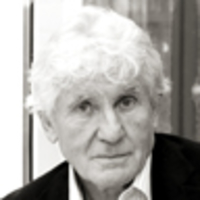The National Geographic channel is trumpeting an exclusive interview with former President George W. Bush that is to be at the centerpiece of its coverage of the 10th anniversary of 9/11. In the former president's two-hour interview, National Geographic says, he will tell "his first-person story ... what facts he weighed when Andrew Card first whispered in his ear; the impact of his situation in a classroom full of children and the press corps; his first efforts to communicate with the nation at large; the flow of information from the military, intelligence agencies and news outlets ... he provides intimate detail on what he grappled with as both Commander in Chief charged with protecting his fellow citizens, and as a family man concerned for his loved ones."
Bush's interview is welcome, for his should in theory be amongst the most meaningful recollections of the events of September 2001. It is unfortunate that he was not willing to submit in 2004 to questioning about those memories by the 9/11 Commission on his own and under oath. The president did reluctantly agree to talk with commission members, but only in the form of a private interview, without recorders or stenographers present, and only if accompanied by Vice President Cheney. The result, the version of events on 9/11 that the two men evidently agreed upon, shed little light on lingering questions as to how America's highest leadership really performed on the morning of the attack.
One sensitive question to which the commission sought an answer was: who issued authority to the military that, should a civilian airliner not change course and land as instructed on 9/11, it should be shot down?
It would have been unthinkable for the U.S. military to down a civilian airliner without a clear order from the president as commander in chief. Were Bush to be out of touch—as he was repeatedly when communications failed aboard Air Force One—the authority to issue such an order belonged to Secretary of Defense Donald Rumsfeld. (On the day, as it turned out, Rumsfeld could not be reached at a crucial stage of the crisis.) The chain of command in such a situation, relevant law decreed, ran from the president to the defense secretary and on through the chairman of the Joint Chiefs to individual commanders. The vice president was not even in the chain of command.

The military understood that. In an exercise before 9/11, one that postulated a suicide mission involving a jet aimed at Washington, the generals had concluded that a putative shootdown could occur only in response to an "executive" order. Air Force Gen. Larry Arnold, who supervised military efforts on 9/11, was to tell the commission that the defense secretary's authorization was necessary even to shoot down a derelict balloon. Only the president, he opined, had the authority to order the downing of a civilian airliner.
On Aug. 28, when Americans sit down to listen to the president's latest account of his actions that morning, they should do so with an awareness of his—and Cheney's—past remarks on the subject. Based on what they have claimed previously, the American people will hardly be able to rely on the "candid observations" promised in the NatGeo press release.
On the Sunday after September 11, in an interview with Meet the Press, Vice President Cheney said the potentially fateful decision had been made—with his own wholehearted agreement—by the president himself. There had indeed been moments, Cheney said, when he thought a shootdown might be necessary. In November 2001, speaking with Newsweek's Evan Thomas, Cheney said Bush took the decision during one of their phone calls around 10 a.m. that morning. "I recommended to the president that we authorize ..." Cheney recalled, "I said, 'We've got to give the pilots rules of engagement, and I recommend we authorize them to shoot.' We talked about it briefly, and he said, 'OK, I'll sign up to that.' He made the decision."
Bush himself, speaking subsequently with The Washington Post's Bob Woodward, said Cheney had indeed suggested that he issue the order. His response, as he remembered it then, had been barely more than monosyllabic. Just, "You bet."
Later still, speaking with the 9/11 commissioners, the president recalled having discussed the matter in a call made to him by Cheney, emphasizing that it was he who authorized the shootdown of hijacked aircraft. By the time the president wrote his 2010 memoir, the call from the vice president had become a call he made to Cheney.
Bush's snap authorization, moreover, had by then transmogrified into a well thought-out plan. "I called Dick Cheney as Air Force One climbed rapidly to forty-five thousand feet ..." the president wrote. "He had been taken to the underground Presidential Emergency Operations Center—the PEOC—when the Secret Service thought a plane might be coming at the White House. I told him that I would make decisions from the air and count on him to implement them on the ground.
"Two big decisions came quickly. The military had dispatched Combat Air Patrols—teams of fighter aircraft assigned to intercept unresponsive airplanes—over Washington and New York ... We needed to clarify the rules of engagement. I told Dick that our pilots should contact suspicious planes and try to get them to land peacefully. If that failed, they had my authority to shoot them down."
Though careful in its language, the 9/11 Commission dropped a clear hint in its Final Report that staff had found the Cheney and Bush account of the exchange less than convincing. There was "no documentary evidence," it noted, to back it up. "We just didn't believe it," general counsel Daniel Marcus declared long afterward. "The official version," senior commission counsel John Farmer would say, "insisted that President Bush had issued an authorization to shoot down hijacked commercial flights, and that that order had been processed through the chain of command and passed to the fighters. This was untrue."
Why might a phony scenario have been fabricated? "The administration version," Farmer noted, "implied, where it did not state explicitly, that the chain of command had been functioning on 9/11, and that the critical decisions had been made by the appropriate top officials ... None of this captures how things actually unfolded on the day."
The question as to who gave the shootdown order has had no adequate answer—until now. We delved deep as we worked on our new book The Eleventh Day—not only in previously withheld commission records but in those of the Secret Service, NORAD, and the FAA, some released to us only in the last few months. We believe we come close in the book to establishing that shoot-down authorization originated not with Bush but with the vice president. Shortly before 10:05, and well before the first verifiable conversation between Bush and Cheney on the subject, which occurred at 10:18. Analysis of further material released to us in just the past few weeks has further persuaded us that our reading of the timeline is correct.
The 9/11 Commission's records reveal, and our research confirms, that on 9/11 the most senior leaders of the United States were isolated, receiving a miasma of information that was either vague, plain wrong, or too late to be of use on that dreadful morning. The fact is that the president and his vice president found themselves irrelevant to the mounting of the nation's defense against Al Qaeda's onslaught.
In the words of commission senior counsel Farmer, "They were an echo chambe r... of little or no assistance on the ground attempting to manage the crisis." That assertion was informed by meticulous study of the evidence. It will be interesting to see how George W. Bush's latest recollections square with it.
Former 9/11 Commission staff member and senior U.S. Army intelligence officer Miles Kara, who in retirement has continued to parse the records of that day, likes to warn researchers not to "impose ex post facto knowledge on the event." The caution holds true for those weighing the ex post facto accounts of former presidents.







